I did eventually return that box of church books. I didn’t recycle any of the old lesson manuals or anything, just gave them back. I debated annotating the margins with point for point rebuttals, but that would have taken more work than benefit.
It was good to see some old friends and acquaintances. Oldest Boy came along, too. A few people asked him if he’d be coming back, looking hopeful. (His reaction: Don’t think so.) He thought it was kind of good to see people, though he was annoyed that everyone commented on how tall he’d gotten. Other people’s kids looked older too. That was strange. I must have been away longer than I’d realised. In fact, it’s only been three years, but it feels longer.
The building looked the same, the art was the same, and the lessons were probably about the same as when I’d left. In fact, that was the overall impression I got: sameness. But not stability — stagnation.
Same people there, too, still hearing the same messages, same exhortations to pay tithing, do Home or Visiting Teaching, support the activities, and on and on. I could probably go back in three more years, and still find mostly the same people there. It’s silly, but because I only ever saw these people at church, I had this cognitive illusion that they’d never left the building in all that time. It was all a bit Hotel California.
I couldn’t imagine sitting through another meeting rehashing the same material — same scriptures, maybe some interesting discussion, maybe a bit of controversy, never really able to be resolved, and the same curriculum over and over.
Since leaving religion, I’ve had more time to learn about the world we live in — about science and nature, philosophy and ethics, language and life. No doubt all the church people had learned things in the interim, too, when not at church. But what I’ve learned — and they still haven’t — is that life is enhanced, not diminished, by enjoying the real world and by rejecting the unseen world of gods, angels, devils, and spirits. Sure, I learned a lot of good moral teachings in that church, and some really awful ones. But the religious system was like a maze that you could stay in forever, whose passages only led back to the same places, with no relation to the outside world.
As I left the building that day, I felt relieved not to be there anymore. I want to say that it was the feeling of having graduated, but that’s not quite right. It was the feeling of having escaped.
My son and I said goodbye to everyone, and walked out into the sunlight. It was a beautiful Sunday morning, too nice to be inside. People were playing a game in a field opposite the church. Life was happening out in the real world, and we were a part of it.
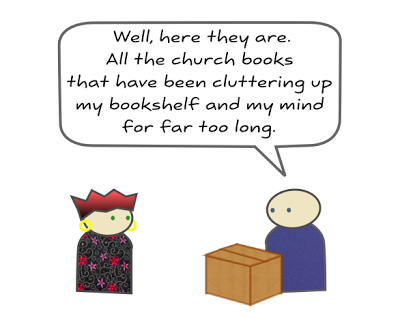

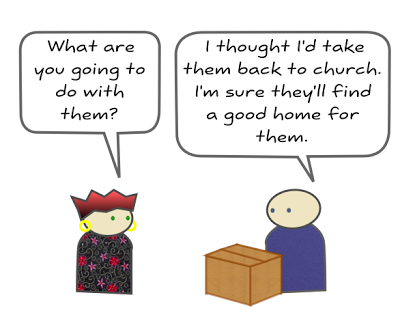
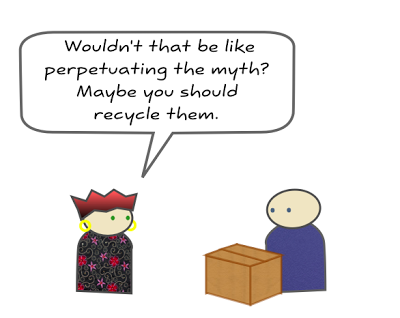

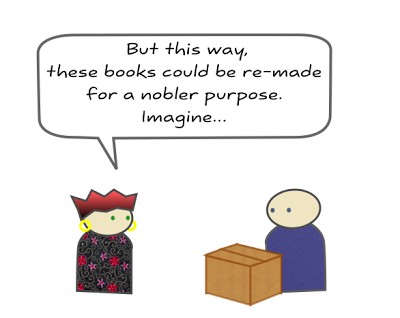


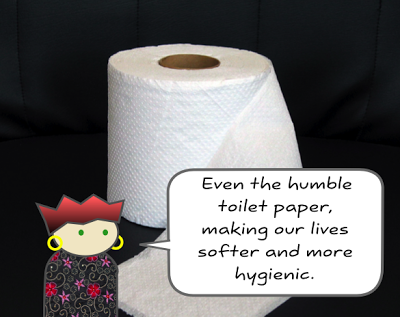
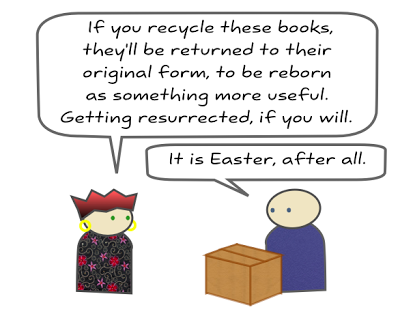

Recent Comments